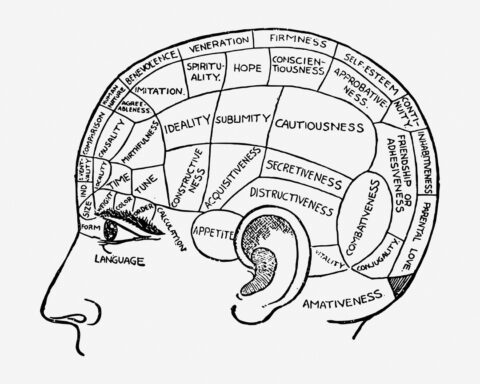Psychological well-being is a fundamental aspect of living a fulfilling and contented life. Understanding our own level of subjective happiness and satisfaction can provide valuable insights into our overall well-being. This article aims to explore the concept of psychological well-being assessment, offering readers a comprehensive understanding of how it can help evaluate and improve their overall emotional state. By adopting an informative and neutral tone, we will delve into the different dimensions of psychological well-being assessment and highlight its significance in promoting personal growth and life satisfaction.

Understanding Psychological Well-Being Assessment and Its Importance
Psychological well-being assessment plays a crucial role in understanding and evaluating an individual’s mental health and overall happiness. It is a comprehensive tool that allows professionals to gain insights into a person’s emotional, cognitive, and social well-being. By employing various assessment methods, such as interviews, questionnaires, and psychological tests, experts can uncover important information about an individual’s psychological state, identify any potential mental health issues, and develop appropriate treatment plans.
The importance of psychological well-being assessment cannot be overstated. Here are some key reasons why it is crucial:
- Identification of mental health problems: Assessment helps in detecting and diagnosing various mental health conditions like depression, anxiety disorders, stress-related disorders, and more. These evaluations allow professionals to identify the root cause of mental health issues and provide appropriate interventions.
- Personal growth and self-awareness: Assessments facilitate self-reflection and aid individuals in understanding their strengths, weaknesses, and areas of improvement. The results can offer valuable insights, empowering individuals to make positive changes and enhance their overall well-being.
- Treatment planning and monitoring: Assessments play a vital role in the development of personalized treatment plans. A thorough evaluation helps professionals tailor interventions and therapies to individuals’ unique needs, ensuring effective and targeted support. Additionally, ongoing assessments during treatment allow for progress monitoring and adjustment of interventions as needed.

Key Factors for Assessing Subjective Happiness and Satisfaction
When it comes to evaluating subjective happiness and satisfaction, several key factors can play a significant role in providing insights and understanding individual well-being. These factors, influenced by both internal and external aspects, contribute to the overall perception of happiness and contentment. Here are the crucial elements to consider:
- Positive emotions: The experience of joy, love, excitement, and other positive emotions greatly impact subjective happiness. Individuals who frequently experience positive emotions have a higher likelihood of reporting greater life satisfaction and overall well-being.
- Life satisfaction: Assessing an individual’s overall life satisfaction allows for a better understanding of their subjective happiness. Factors such as contentment with relationships, career, and personal achievements significantly contribute to overall life satisfaction. A higher degree of life satisfaction often correlates with enhanced happiness levels.
- Mindfulness and gratitude: Being present in the moment and practicing gratitude can positively influence subjective happiness. The ability to appreciate the small joys in life, express gratitude for what one has, and maintain a positive outlook all contribute to increased levels of happiness and overall satisfaction.
Continuously evaluating these key factors can provide a deeper understanding of the complex nature of subjective happiness and satisfaction. Although subjective in nature, assessing these components can help individuals and researchers gain insights into the various factors that contribute to overall well-being and guide interventions aimed at enhancing happiness levels.
Insights and Recommendations for Enhancing Psychological Well-Being
Our mental well-being is a vital aspect of leading a fulfilling life. To enhance our psychological health, it is essential to take proactive steps to nurture and prioritize our mental state. Here are some insightful recommendations to help cultivate a positive mindset and boost psychological well-being:
- Practice mindfulness: Engaging in mindfulness exercises, such as meditation or deep breathing, can help us become more aware of the present moment and reduce stress. Embracing mindfulness allows us to focus on our thoughts and emotions without judgment, paving the way for increased self-awareness and inner peace.
- Cultivate a strong support system: Surrounding ourselves with a supportive network of friends, family, or even online communities can provide an invaluable source of emotional support. Sharing our experiences and feelings with those who understand and empathize with us can help alleviate stress, anxiety, and feelings of isolation. Developing and nurturing these connections strengthens our overall well-being.
- Prioritize self-care: Carving out time for self-care activities is crucial in maintaining good mental health. Engaging in hobbies, exercising regularly, getting enough sleep, and eating a balanced diet are simple yet effective ways to take care of our overall well-being. Prioritizing self-care enables us to recharge, reduce stress levels, and boost our mood, fostering a sense of inner contentment and fulfillment.
Remember, each individual’s journey towards enhanced psychological well-being is unique, and it may take time to find the strategies and practices that work best for you. Incorporating these insights and recommendations into your daily routine can serve as a solid foundation for a happier, healthier emotional state. By investing in our mental health, we gain the strength and resilience to navigate life’s challenges and find fulfillment in our personal growth.
Implementing Effective Strategies for Improving Subjective Happiness and Satisfaction
One of the most essential aspects of leading a fulfilling and satisfying life is subjective happiness. It refers to the positive emotions and overall contentment that an individual experiences, irrespective of external circumstances. Implementing effective strategies to enhance subjective happiness can greatly contribute to an improved sense of well-being and overall life satisfaction. Here are a few practical ways to achieve this:
- Nurture Positive Relationships: Surrounding yourself with supportive and uplifting individuals can significantly impact happiness levels. Cultivate meaningful connections with family, friends, and positive influences, fostering a sense of belonging and social support.
- Practice Gratitude: Being grateful for the small joys and blessings in life can significantly boost subjective happiness. Take time each day to consciously acknowledge and appreciate the positive aspects of your life, whether it’s the beauty of nature, a kind gesture from a stranger, or personal achievements.
- Cultivate Mindfulness: Engaging in mindfulness practices, such as meditation or deep breathing exercises, can help in reducing stress and enhancing overall emotional well-being. Being fully present in the moment and letting go of judgment or worries can increase subjective happiness and satisfaction with life.
Implementing these strategies can serve as a foundation for improving subjective happiness and overall life satisfaction. By nurturing positive relationships, practicing gratitude, and cultivating mindfulness, individuals can create a more positive and fulfilling experience of life, regardless of external circumstances. Remember, small steps towards happiness can lead to significant changes in overall well-being.
To Conclude
In conclusion, the assessment of psychological well-being is an indispensable tool for individuals seeking to understand and enhance their subjective happiness and satisfaction. By systematically evaluating various dimensions of our well-being, such as positive emotions, life satisfaction, personal growth, relationships, and purpose in life, we gain valuable insights into areas that may require attention or improvement.
The assessment provides a methodical approach to evaluate our current state of psychological well-being, offering a comprehensive snapshot of where we stand and highlighting areas that may contribute to our overall happiness and satisfaction. It allows us to identify both our strengths and areas for development, serving as a roadmap for personal growth and fulfillment.
However, it is important to remember that no assessment can fully capture the intricacies and complexities of our subjective experience. Psychological well-being is multifaceted and varies greatly among individuals. While the assessment may guide us towards potential areas of improvement, it should be used as a starting point rather than the sole measure of our overall well-being.
Additionally, psychological well-being is a continual journey that evolves over time. Regularly reassessing our well-being allows us to track progress and adapt our strategies accordingly. Seeking professional guidance or support from qualified experts may also prove beneficial, as they can provide valuable insights and techniques to foster long-lasting well-being.
Ultimately, the assessment of psychological well-being provides individuals with an opportunity to gain deeper self-awareness, identify areas for growth, and improve their overall happiness and satisfaction. By acknowledging the significance of our mental and emotional state, and actively working towards nurturing our well-being, we can pave the way towards a more fulfilling and meaningful life.
Psychological well-being is an important aspect of life that often goes overlooked or taken for granted. It is important to be aware of how well individuals are emotionally managing their lives, and to recognize any areas that can be improved. One of the best ways to understand your level of well-being is to assess it through psychological well-being assessments.
Psychological well-being assessments are designed to evaluate an individual’s subjective happiness and satisfaction with life. These assessments provide insight into a person’s overall psychological health, and can be used to identify areas in need of improvement. They consist of a series of questions or tasks that help to assess different characteristics and behaviors that contribute to well-being.
These assessments measure traits such as positive outlook, emotional intelligence, self-efficacy, and life satisfaction. Each trait demonstrates an area of psychological well-being that can be improved upon in order to enhance happiness and satisfaction with life. The assessments can also help to identify any possible mental health issues that might be interfering with well-being.
Psychological well-being assessments can be administered in the form of a self-assessment, or with the help of a professional. Using a self-assessment is often the most convenient way to assess one’s own level of psychological health. These self-assessments typically consist of questions or tasks that are designed to evaluate traits such as emotional intelligence, self-efficacy, positive outlook, and life satisfaction.
Alternatively, psychological well-being assessment can be done with the help of a professional. Professional assessments are typically more comprehensive than self-assessments, and provide a more detailed picture of overall psychological health. Professional assessments are also done over a period of time in order to get more accurate results.
Psychological well-being assessments can be an effective way to evaluate an individual’s subjective level of happiness and satisfaction with life. They can help to identify areas that need improvement and can also help to identify any mental health issues that may be present. Self-assessments are often the easiest route to take, but professional assessments are often more comprehensive and provide more detailed results. Either way, psychological well-being assessments are an effective tool to assess one’s overall psychological health.







